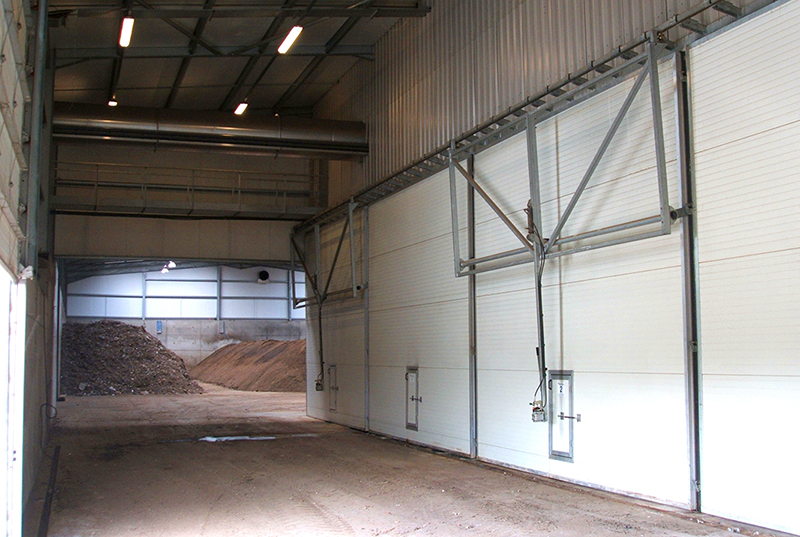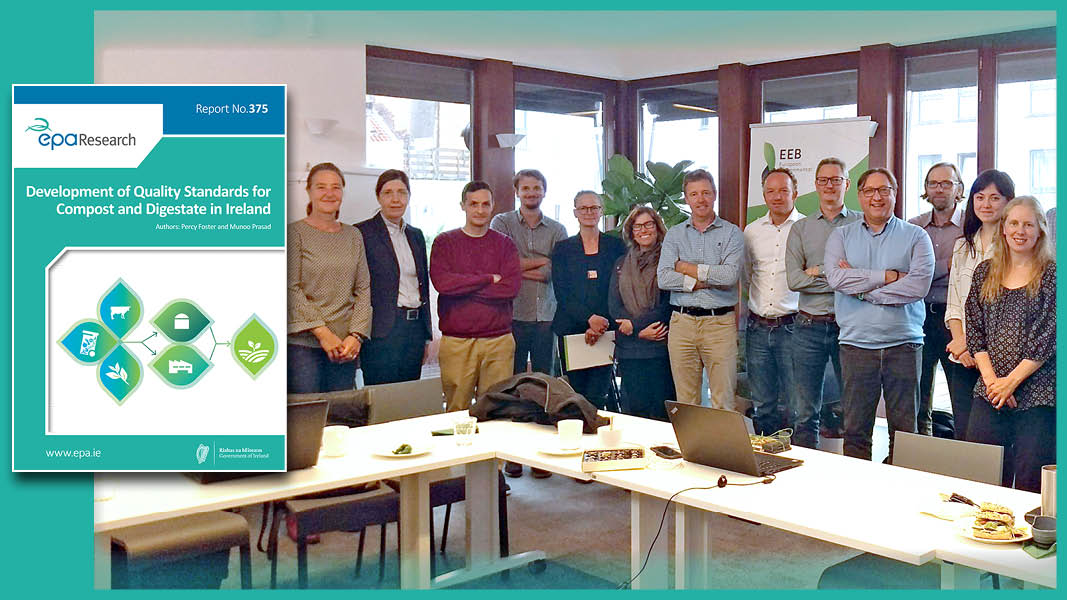Top: Cré co-hosted a meeting with the European Compost Network in Brussels with Quality Assurance Scheme (QAS) organizations to exchange knowledge on plastic in compost/digestate, stability and overall QAS issues as they relate to creating standards in Ireland.
Cré, the Composting & Anaerobic Digestion Association of Ireland, announced that the country’s Environmental Protection Agency (EPA) published Research 375: Development of Quality Standards for Compost and Digestate in Ireland in May. “There are no national end-of-waste criteria for compost and digestate derived from source separated materials in Ireland,” explains Percy Foster, Cré’s director. “This study developed a quality standard for digestate and an updated standard for compost, and recommends a strategy on how Ireland should implement national end-of-waste criteria for compost and digestate. It also examined best practice in other countries and options for having end-of-waste criteria.” The research report is authored by Foster and Dr. Munoo Prasad, a compost researcher affiliated with Cré.
EPA-funded research generates a scientific base to support environmental protection. Projects are targeted to deliver on three key areas: Identifying pressures; Informing policy; and Developing solutions. The pressures include the lack of end-of-waste criteria for compost and digestate, and varying quality standards being used by composting and anaerobic digestion plants. In terms of informing policy, recent European Union (EU) circular economy and bioeconomy policies and the New European Green Deal promote the recycling of nutrients from organic wastes into products that can be used as soil improvers and fertilizers, thereby reducing the use of mineral fertilizers. This has created renewed interest in the use of compost and digestate.

O’Toole Composting in Carlow, Ireland utilizes an in-vessel tunnel system. Photos courtesy of Cré
With regard to developing solutions, Foster notes: “The research developed should be used by the National Standard Authority of Ireland to update Irish Standard (IS 441) on compost and develop a new IS standard for digestate. The possible approach that could be taken in Ireland to define end-of-waste criteria is by implementing either biowaste ordinance legislation or a national fertilizer regulation. It should include the requirement that compost or anaerobic digestion plants proposing to produce an end-of-waste product be compliant with a Quality Assurance Scheme that is monitored by a quality assurance organization [see photo at top]. By achieving end-of-waste status, it generates a level playing field. It also supports the development of a circular economy while still respecting the precautionary principle by avoiding pollution when compost and digestate are used on soil.”
This study collated the results of the analysis of Irish compost and digestate samples and then compared the Irish data with databases, reports and standards from other European countries. The Joint Research Centre (JRC) report End-of-waste Criteria for Biodegradable Waste Subjected to Biological Treatment (Compost & Digestate) and the new Fertilising Products Regulation (EU) 2019/1009 were considered in this study, explain Foster and Prasad. “From this collation and comparison process, an updated compost standard and a new digestate standard (whole, liquid and fiber) were developed. …. In addition to the mandatory limits, we recommend that the value of a number of parameters, such as nutrients, should be declared by all plants so that the end user can make informed decisions on the best way to use the product.”
Among the report’s recommendations is to establish a working group to develop a national plan to address contamination. “The greatest risk to achieving the standards is the presence of contamination in the feedstock,” say the authors. Their proposed quality standards for compost and digestate address heavy metals; pathogens; impurities, viable weed seeds and PAH; stability and maturity; and organic matter. The proposed contamination limits for compost and digestate are the same:
- Total glass, metal and plastic > 2 mm diameter by dry weight: 0.5%
- Plastics > 2 mm: 0.25%












